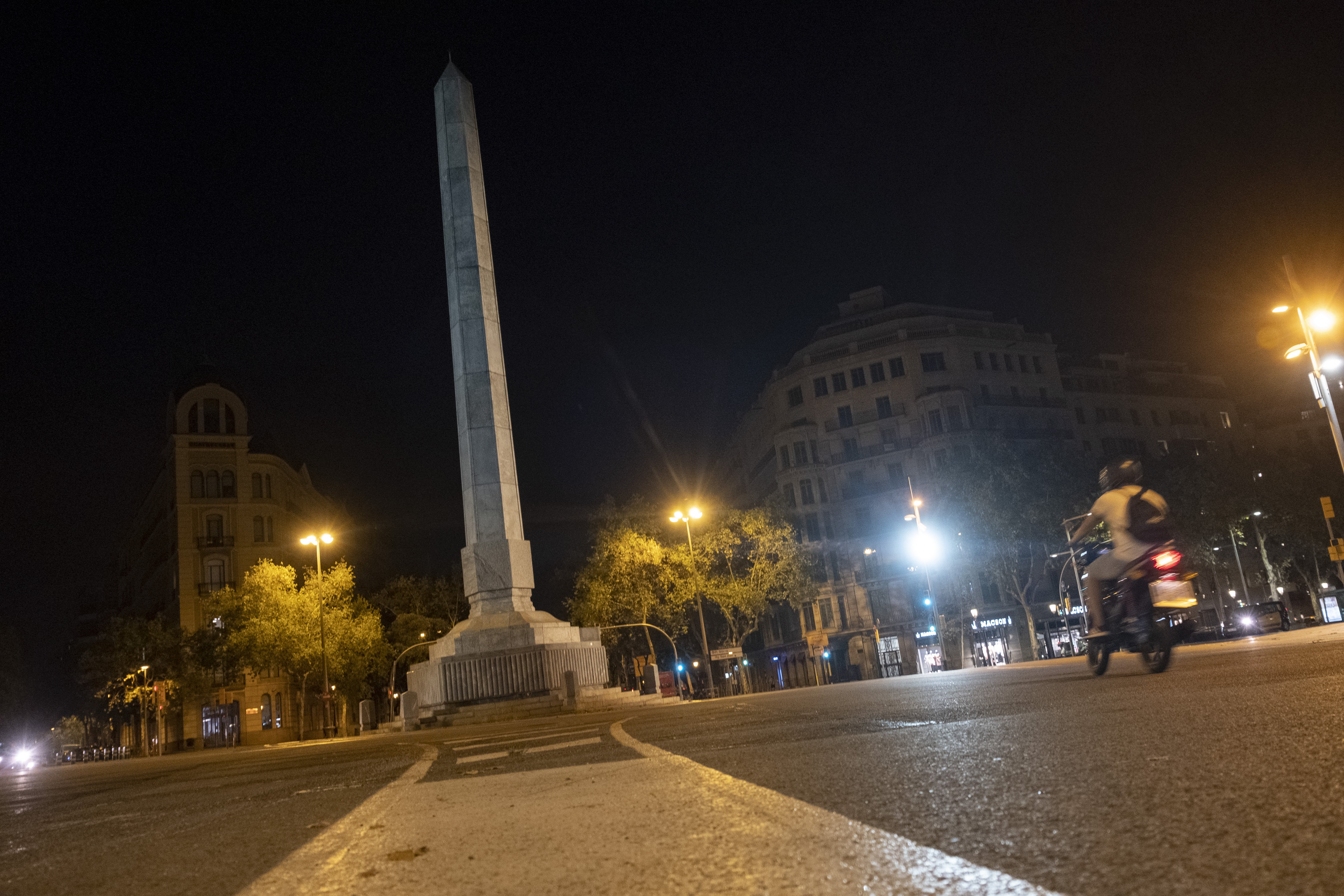Suddenly it's gone. The night-time curfew in most of Catalonia has ended abruptly after the Catalan High Court (TSJC) only authorized its extension in 19 municipalities. As of midnight this Thursday night there will no longer be a curfew in Barcelona city or virtually anywhere in the metropolitan area, nor in the capitals of Girona, Lleida and Tarragona. The judges have overturned the Catalan government's proposal to extend the restrictions for one more week in 148 localities. However, all the other restrictions, like the 12:30am closure of bars and restaurants and the maximum group size of ten, remain in force throughout Catalonia.
The decision of the court endorses the measure only for those municipalities with the highest incidence of Covid. These 19 municipalities are Alcarràs, Amposta, Arenys de Munt, Badia del Vallès, Balaguer, Banyoles, Calafell, Celrà, Cervelló, Gelida, Manlleu, Martorell, Montblanc, Móra d'Ebre, Palafolls, Salt, Sant Feliu de Guíxols, Sarrià de Ter and Torroella de Montgrí.
The TSJC does not see as "justified" the measure proposed by the Catalan government and accordingly only maintains the curfew in those localities of more than 5,000 inhabitants where the incidence accumulated in seven days (IA7) is more than 250 cases per 100,000 inhabitants - the threshold that the Catalan executive had used over the last two weeks.
The government had proposed a fifth extension of the curfew, which included a tightening of the criteria. The original criteria of an IA7 of 400 cases per 100,000 inhabitants was reduced two weeks ago to 250 cases, which the court accepted. This time it was halved again to 125 cases, but the judges were not amused. They have left the criteria at 250 cases, which means only the scattered municipalities in the chart below will be subject to the 1am-6am confinement:
The epidemiological situation is improving
Beyond the judges, there had been significant criticism of the latest proposal by the Catalan executive, given that the epidemiological situation has been improving every day. In fact, health minister Josep Maria Argimon himself has said that "Covid cannot be an excuse to curtail rights and freedoms."
The same view was voiced forcefully by the nightlife sector business association, Fecasarm. The organization stated this week that the curfew has aggravated the situation of some businesses that were already "suffocating", especially in tourist areas, and announced that the sector has suffered losses of 5.5 billion euros since the outbreak of the pandemic.
The other restrictions remain in place
Before would-be party-goers get too euphoric, they should note that even without the curfew, the other restrictions remain in place. The TSJC has guaranteed that cultural, leisure, leisure and sports venues will be required to close at 12:30am. The sale of alcoholic beverages in commercial establishments is also prohibited between 10pm and 6am.
Moreover, as before, gathering and meetings in both public and private spaces may not exceed the limit of ten people, unless they all belong to the same coexistence bubble. Occupancy in the interior of bars and restaurants is limited to 50% of the normal capacity, and tables at such establishments may only be for a maximum of six people and must be two metres away from other tables or groups.
Below, today's court ruling in the original Spanish:
Main image: A lone motorcyclist in Barcelona's Avinguda Diagonal during curfew / Carlos Baglietto

